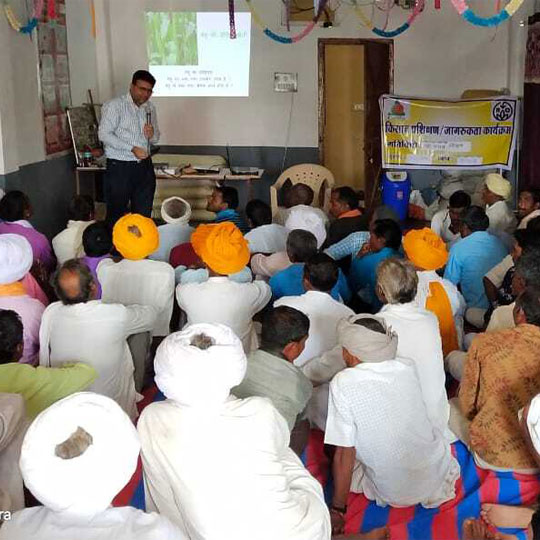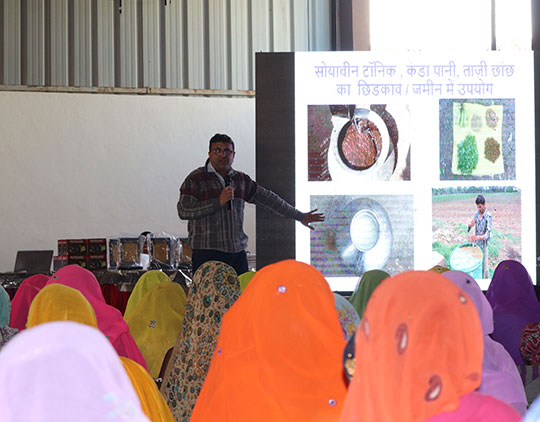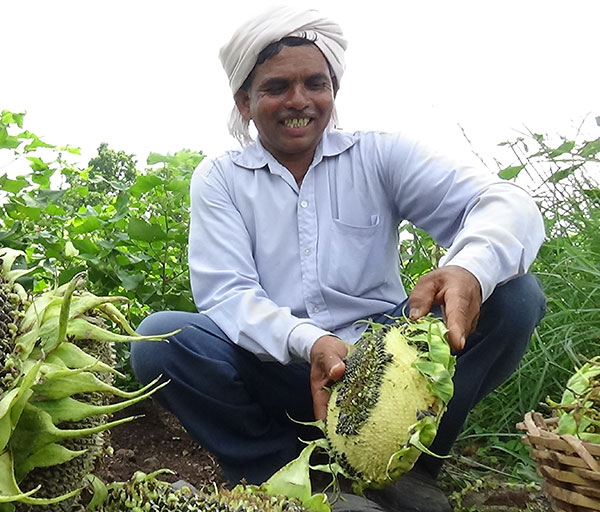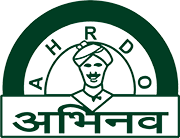TRAINING & VISIT
Objectives
- To improve the knowledge and confidence of field staff-farmers about low input Organic farming.
- To build the concept of organic farming with a holistic approach.
- To improve the microclimate of the farm to fight various challenges of climate change.
- To reduce the cost of cultivation by adoption of low input practices.
- To protect various components of sustainable agro eco system i.e. soil, water,air, flora and fauna etc.
- To ensure food security of farmers family.
- To produce poison free food for good health of farmers and consumers.
- To get better market price by innovative crop combination
- To get better market prices by value addition of agro produce.
- To develop a self reliant system from seed to market

Training Topics
Present challenges of chemical agriculture system, Introduction of organic farming and its challenges, yths
Brief about History of agriculture, Problems of chemical agriculture. Organic as Solution for the present deteriorating system. Organic agriculture, Challenges, Myths.
Holistic approaches to organic farming
How to develop a model organic farm? Selection of farm /farmer Different components of Model Organic farm.
Plantation to improve microclimate
Importance in microclimate improvement, Plants suitable for bunds i.e. Gliricidia, Cassia siamea , Drumstick, Guava, Lemon, Apple ber, Karonda, Jackfruit, etc.
Renewable energy
Types of renewable energy , Solar energy utilization, Solar fencing , Solar dried products and Biogas technology its importance in organic agriculture Use of Bio gas slurry , Costing of Solar and Bio gas plants etc.
Seed Management
Importance of quality seed, Types of seeds Deshi, improved varieties/ hybrids, Hybrids Vs improved varieties, Seed self-sufficiency by the selection process. (Atma nirbhar beej ),Seed treatment by beejamruth etc. Time of sowing and spacing for better crop production, Krishi panachang Seed storage etc.
Soil and Water management
Concept of soil, Land and water management practices i.e farm bunding, rain water harvesting technologies, mulching minimum tillage activities, optimum irrigation and its importance in crop production. Improving irrigation use efficiency by effective technologies such as Irrigation methods Drip/sprinkler.
Organic pest management concept
Concept of pest management under the organic system. Friends and enemies of the crop, Natural, Biological, mechanical, and cultural ways of controlling pests. Different herbal preparation techniques of Organic pest control Leaf extract, seed extract, GOC extract, Buttermilk, Cow urine, mud soil spray, etc.
Crop planning and its importance in Organic agriculture. Importance of border mix crop, trap crop, cover crop , intercropping, traps cropping in organic farming. Crop rotation and its importance. Ill effects of Monoculture practices. nutritional farming etc. Various economic crop combinations for Kharif, Rabi and Zaid crops
Harvest and Post Harvest
Harvesting , threshing, drying, transport and distribution Storage , processing (cleaning, classification, dehulling, pounding, grinding, winnowing, drying, sieving, milling etc.)
Harvesting tools etc.
Animal husbandry
Importance of bullock /Cow in organic farming, Animal Feeding , Animal health , Model Goshala , Cow urine banks , Economics of Animals ,Cow Based enterprises etc.
Marketing of agriculture produce
Group marketing of Organic vegetable, Packaging , branding , selling of agro produce such as Basmati, Sharbati wheat, Pulses, Spices chilli, turmeric etc. Direct Marketing of agro produce to consumer. Consumer awareness, Establishment of small processing units, Establishment of domestic markets etc.
Certification process – Why and How ?
Certification standards NOP, NPOP,PGS etc., required documentation, complete process etc.
Organic Project Management strategies
How to plan project activities, monitoring system, traceability of produce, Scalable models, Administration and Management of projects
Extension Tool development
Crop POP , Audio messages, Case Study , Short Films, Whats app films , Movie making, Poster , Photography, Baseline survey, formats etc.
Food and Nutrition
Chemical Food hazards , Importance of organic food , Consumer awareness program, Nutritional farming etc.
Other
Cost of cultivation assessment profit and loss account Model Farm development , Group formation (S.H.G., Federation) , Translation work English to Hindi, Marathi and Gujarati languages), Development of Master trainer , Lead farmers, Conducting, Mega workshops , Meetings and seminars, Exposures, Bio dynamic agriculture, Organic Food and its importance , Terrace farming etc.
Establishment of Input Production centres
Baseline survey ,Complete production set up know how , Product mix , Production cost etc. with Goshala / S.H.G.’s etc.

Methodology
Abhinav aims to establish, maintain and enhance high standards of advice, training and information in different components of organic agriculture. Abhinav believes in scientific organic farming to develop a sustainable agro ecosystem.
It will achieve this through basic three principles of extension :
 Learning by hearing
Learning by hearing Seeing is believing
Seeing is believing Learning by doing
Learning by doingMethodology
Lecture-cum- Group Discussion ( With PPT )
The talk-cum-discussion method is used to orient the participants about concept of a particular module during the training session. The opportunity is provided to the participants to discuss their field experiences and problems related to the particular module. This method is used for the modules on extension talk.Training will be done with support of power point presentation (if projector and other facility available)
Sharing of Experiences
In a many a cases, A sharing of experiences session included for better understand of problems and prospects of case studies for proper implementation of project at grass root level.Interactive discussion /Question session will be part of training program.
Recall Session
This session helps them to introduce new information to the farmers in their memory and it allows an assessment of understanding. During the session, participants are prompted to summarize key information. This is done at the end of each part / session.
Movie Shows
Abhinav is also having a very good collection of movies on Sustainable agriculture. Movie show will be a part of training program.
Poster presentation
Various posters made by Abhinav will be shown to farmers/ trainees to teach organic farming technologies
Practical demonstrations
Under this various composting and Bio pesticide preparation techniques will be practically demonstrated with involvement of trainees. i.e. Seed treatment with Beejamruth etc., Nutrient management techniques such as Jeevamruth Preparation , Bed composting , Soybean tonic , Upale ka Pani etc. Pest control techniques such as leaf extract preparation, seed extract , Garlic onion ginger chilli paste , Cow urine , Butter milk etc. Traps such as light trap, sticky trap, pheromone trap etc
Feed back process
At the end of the training programme, feedback is taken from the participants. On this basis the training process is improved.
Training material distribution
After the training program, available extension tools such as 1-2 pages of literature, audio messages/videos etc. are provided for an in-depth understanding of the training topics.
Economic calculations
Profit and loss calculation is a integral part of each training topic. By doing economic assessment, farmers can stop the habit of spending more money on external inputs.
Outcomes
- The participants will be mobilized/motivated to adopt and promote organic farming
- More clarity about holistic approaches to organic farming.
- A better understanding of various low-cost effective techniques
- Better clarity of all important topics of organic agriculture.
Low cost quality agro inputs. - Integrity of organic produce.
- Scalable system.
- Employment to rural youth / SHG members.


